Abetting Batterers
Abetting Batterers
What Police, Prosecutors, and Courts Arent Doing to Protect Americas Women
Andrew R. Klein and Jessica L. Klein
ROWMAN & LITTLEFIELD
Lanham Boulder New York London
Published by Rowman & Littlefield
A wholly owned subsidiary of The Rowman & Littlefield Publishing Group, Inc.
4501 Forbes Boulevard, Suite 200, Lanham, Maryland 20706
www.rowman.com
Unit A, Whitacre Mews, 26-34 Stannary Street, London SE11 4AB
Copyright 2016 by Rowman & Littlefield
All rights reserved . No part of this book may be reproduced in any form or by any electronic or mechanical means, including information storage and retrieval systems, without written permission from the publisher, except by a reviewer who may quote passages in a review.
British Library Cataloguing in Publication Information Available
Library of Congress Cataloging-in-Publication Data
Names: Klein, Andrew R., author. | Klein, Jessica L., author.
Title: Abetting batterers : what police, prosecutors, and courts arent doing to protect Americas women / Andrew R. Klein and Jessica L. Klein.
Description: Lanham : Rowman & Littlefield, [2016] | Includes bibliographical references and index.
Identifiers: LCCN 2015050842 (print) | LCCN 2016006666 (ebook) | ISBN 9781442248274 (cloth : alk. paper) | ISBN 9781442248281 (Electronic)
Subjects: LCSH: Abused womenUnited States. | Wife abuseUnited States. | Family violenceUnited States. | Abusive menUnited States.
Classification: LCC HV6626.2 .K5947 2016 (print) | LCC HV6626.2 (ebook) | DDC 364.15/550973dc23
LC record available at http://lccn.loc.gov/2015050842
 The paper used in this publication meets the minimum requirements of American National Standard for Information SciencesPermanence of Paper for Printed Library Materials, ANSI/NISO Z39.48-1992.
The paper used in this publication meets the minimum requirements of American National Standard for Information SciencesPermanence of Paper for Printed Library Materials, ANSI/NISO Z39.48-1992.
Printed in the United States of America
Contents
Introduction
The Right of Chastisement, A Husbands Responsibility
Then
M r. and Mrs. Black were estranged, living apart in North Carolina in 1864. Mr. Black happened to pass by his wifes dwelling. She yelled out to him, questioning whether he had patched Sal Dalys bonnet, a woman described in the court record as being of ill-fame. Mr. Black proceeded to follow his estranged wife back into her house and accused her, in turn, of having a connection with a Negro, according to subsequent court documents. She retorted that Mr. Black was nothing but a hog thief. At this point, he grabbed her by her hair and forced her to the ground, where he held her for a long time. Perhaps he also strangled her, because she sustained injuries to her head and suffered a sore throat that lasted several weeks, although, we are told, she was fully recovered by the time of her husbands trial for assaulting her.
The trial did not last long. In fact, it never began, as the trial court summarily dismissed the charges against Mr. Black because he had the right to beat his wife, known as the Right of Chastisement.
The court ruled: A husband is responsible for the acts of his wife, and he is required to govern his household, and for that purpose, the law permits him to use towards his wife such a degree of force as necessary. The court concluded that the law prefers to leave the parties to themselves as the best mode of inducing them to make the matter up and live together as man and wife should. Anythinglike a trialthat opens up the matter to the public widens the breach, makes reconciliation impossible and encourages insubordination.
Besides, the court noted, Mr. Black acted in the heat of passion, provoked by his wifes verbal abuse. In fact, the court went on to praise Mr. Black for showing restraint in his assault.
The Civil War ended the year after this decision. A new, liberal, reconstructed North Carolina Supreme Court returned to the issue of domestic violence in 1874, several years before the North abandoned its occupation of the state. This time it was a drunken Mr. Oliver who came home for a morning work break to his wife. He claimed that the bacon she served him had skippers on it, and he threw their coffeepot on the floor in protest. He then went outside and cut two switches, which he brought inside and placed on the floor. He announced he was going to beat his wife with them because she and her dd mother had aggravated him to death.
The switches were four feet long, half filled with branches and leaves. One was as large as a mans small finger. The other was smaller. Mr. Oliver struck his wife five times with the switches. According to a witness, he hit her as hard as he could. He only stopped as a result of outside intervention.
At a subsequent trial, Mr. Oliver was found guilty. The new, improved North Carolina Supreme Court, typical of courts across the country in the 1870s, allowed his conviction to stand. The court declared: We assume that the old doctrine that a husband had the right to whip his wife, provided that he used a switch no larger than his thumb, is not the law in North Carolina. However, lest its decision be misinterpreted, it hastened to add: But from motives of public policy, in order to preserve the sanctity of the domestic circle, the Courts will not listen to trivial complaints. If no permanent injury has been inflicted, nor malice, cruelty, nor dangerous violence shown by the husband, it is better to draw the curtain, shut out the public gaze, and leave the parties to forgive and forget.
Now
Fast-forward to May 13, 2014. More than 140 years later, North Carolina NFL star Greg Hardy attacked his partner in his apartment, picking her up and throwing her into the tiled tub of the bathroom, causing bruises to her head, neck, back, shoulders, arms, legs, elbow, and feet, according to the victim. Hardy then pulled her from the tub by her hair, declaring that he was going to kill her, break her arms, and other threats that she subsequently admitted she completely believed. He dragged her across the bathroom into the bedroom where he strangled her with both hands around her throat while she was lying on the floor. Hardy picked her up over his head and threw her onto a couch covered in assault rifles and/or shotguns that Hardy bragged were loaded. Landing on those weapons caused more bruises to the victims neck and back. Hardy then summoned an employee to come into the room and hold her, which the assistant did. They then took her into the hallway outside the apartment while she begged for her freedom and promised not to reveal their violence. In the hall, they pushed her down and then returned back inside the apartment. The victim crawled to the elevator, escaped to the street, and ran to the Charlotte-Mecklenburg police department.
On June 15, a judge found Hardy guilty of assaulting a female and communicating threats. She imposed a sixty-day jail sentence, but then suspended it so that Hardy would serve no time at all in jail. Hardy appealed. Prosecutors subsequently dropped the charges because they said the victim had disappeared, and under the states archaic trial de novo system, the first trial before a judge is not recorded and doesnt count if the defendant claims his right to a jury trial. According to the Charlotte Observer , Hardy reached a private settlement with the victim.
Although some may suspect that Hardy received special consideration as a sports celebrity, in fact the maximum sentence allowed under North Carolina law for what prosecutors charged Hardy is only 150 days in jail. For Hardy to be charged with the more serious offense of strangulation, the state would have had to prove physical injury, which is difficult to establish short of the victim dying from asphyxiation.
Short as the maximum sentence is, North Carolina takes domestic violence a bit more seriously than South Carolina, where the maximum penalty was only sixty days in jail until May 2015 when the legislature finally increased it by thirty daysand more for repeat convictions, if the victim is pregnant, or if the offenses occurred in the presence of children or involved strangulation. The maximum sentence for violation of a protective order remained at thirty days. Of course the maximum punishment for a domestic assault, strangulation, or violation of a protective order is only theoretical. Rarely do prosecutors recommend or judges impose actual jail sentences for domestic violence crimes. Hardys sentence is typical in that respect; any jail sentence imposed is usually suspended, if the case even gets that far in court. Most are diverted or dismissed.
Next page
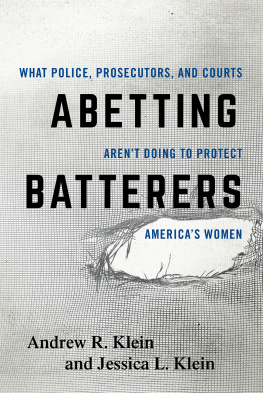
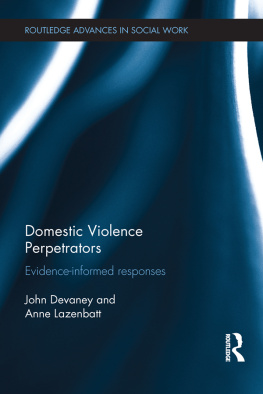
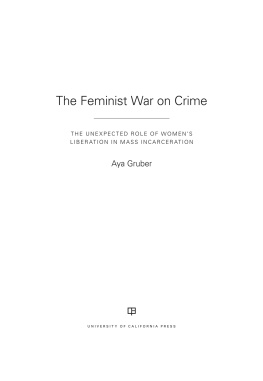
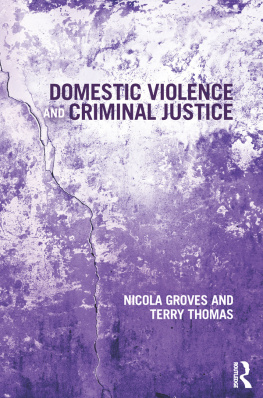


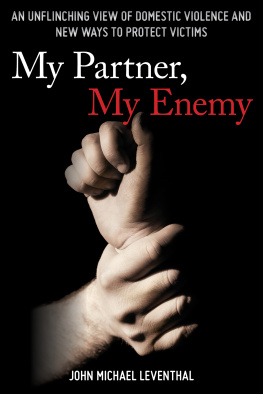

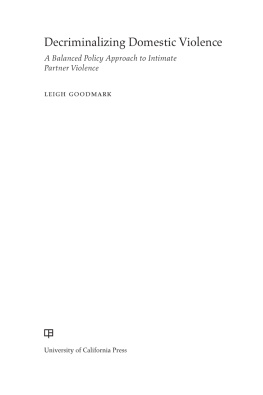

 The paper used in this publication meets the minimum requirements of American National Standard for Information SciencesPermanence of Paper for Printed Library Materials, ANSI/NISO Z39.48-1992.
The paper used in this publication meets the minimum requirements of American National Standard for Information SciencesPermanence of Paper for Printed Library Materials, ANSI/NISO Z39.48-1992.